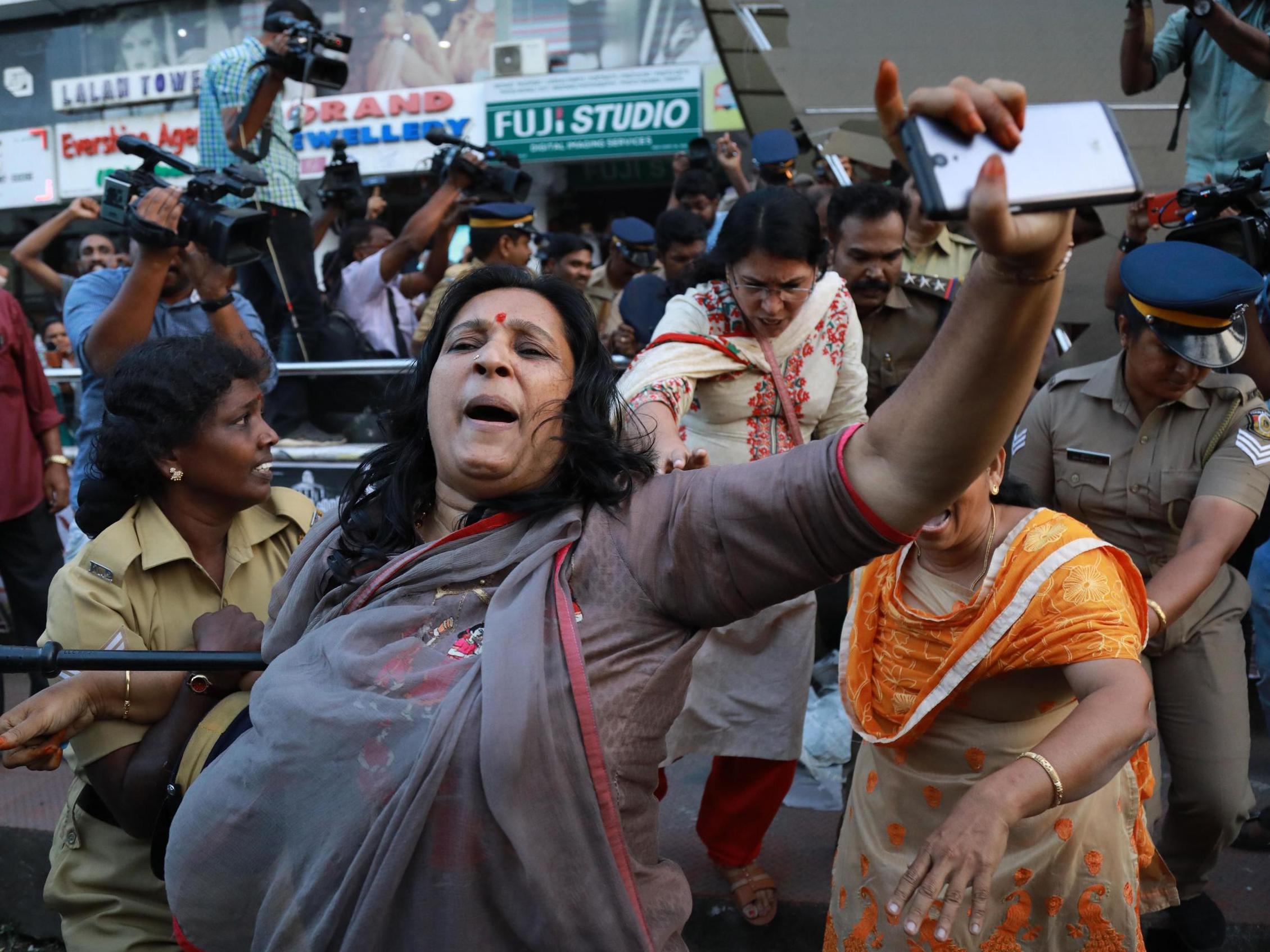By fighting for access to India’s Sabarimala temple, Hindu women are proving religion and equality can go hand in hand
As protests continue to rock Kerala, onlookers across India are beginning to question the roles of faith and gender equality in the debate


While some of us were bringing in the new year with heavy heads, thousands of women in the southern Indian state of Kerala joined hands to form a 620km “women’s wall” to champion gender equality.
The wall was a state-sponsored event in which more than 5.5 million women – from homemakers and engineers to actors and state officials – gathered to counter protests from groups opposing the entry of women into a religious shrine.
The shrine in question, located in the Sabarimala temple complex, has only recently opened its doors to women. But for men, the site has been one of the largest annual pilgrimages in the world for decades.
Since 1972, the law prevented women of “menstruating age” – between 10 and 50 – from entering the shrine of Lord Ayyappa. The law was upheld in 1991 by a Kerala High Court ruling. According to Hindu mythology, Lord Ayyappa, took a vow of “eternal celibacy”. Women of reproductive age are, according to temple authorities, a source of “temptation” for the deity.
In September 2018, the Indian Supreme Court overturned the ban.
The move, however, was and is still being met with protest from devout Hindu politicians, right-wing groups, and fundamentalists. Despite the Supreme Court ruling, Rehana Fathima, a women’s rights activist, was arrested in November for entering the temple on the grounds of “hurting religious sentiments”.
And by 2 January this year, four months after the Supreme Court ruling, two women made history after they entered the shrine legally. This wasn’t an easy feat, however. After their first attempt failed, the pair visited the temple with a police escort in the wee hours of the morning to avoid daytime protestors.
But this too was met with agitation.
Media personnel covering ongoing protests were attacked and images of one such camerawoman, brought to tears as she continued filming while being heckled, abused, and threatened by protesters, went viral.
Beyond that, though, the Sabarimala temple was closed by (the male) priests after the women’s visit for a “purification ritual”. Schools and colleges have closed in the midst of protests. And the sheer depth of violence that has ensued since begs the obvious question, “Why are people so angry, so aggressive?” But also, more importantly, “can religion and equality go hand in hand?”
Clearly, the women of Kerala and progressive Hindu groups believe that they can – the women’s wall was proof enough.
Moreover, the two have gone hand in hand in the past: the “safeguarding” of tradition is a recent phenomenon. Before the ban was made official in 1972, women visited the religious site, including the Queen of Travancore, who visited between 1939 and 1940 while in her forties. And, as late as 1986, scholar Radhika Sekhar was allowed entrance into the temple.
Most importantly though, I think the reason religion and equality in India can and should go hand in hand is the fact that the constitution upholds it: being a secular nation, every citizen in India has the right to the freedom of religion – and that freedom can’t solely extend to male fundamentalists looking to “protect” their “rights”.
But with more than 5,700 arrested in connection to the violent protests against the entry of women to Sabarimala, the issue has uncovered larger-scale political issues, too. The current ruling government, the Bharatiya Janata Party (BJP), with its majority Hindu support base, has openly fought back against the Supreme Court’s decision.
In October last year, BJP President Amit Shah declared that the “BJP is standing like a rock with devotees” in protest, and Kerala’s “left government” ought to “be warned”.
Local airlines have issued advisories against travelling to Kerala, crude bombs have been thrown, one person has even died in the midst of the Sabarimala row. As protests continue to rock Kerala and widespread vandalism erupts across the state, onlookers across India question the roles of faith, gender equality, and politics on the issue.
Months shy of India’s 2019 general election, these issues will, undoubtedly, play a pivotal role in their outcome.

Join our commenting forum
Join thought-provoking conversations, follow other Independent readers and see their replies